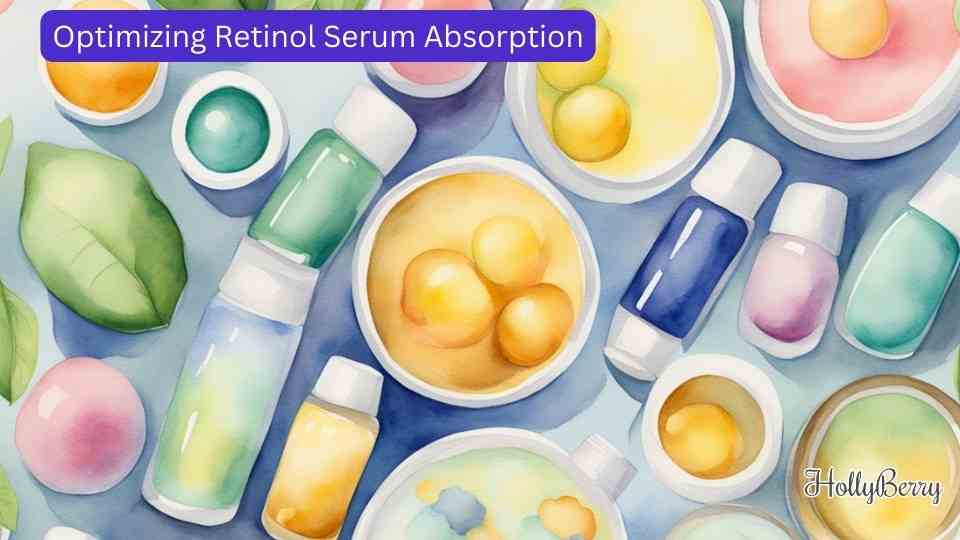
Optimizing Retinol Serum Absorption
Share
Expert Tips for Maximum Results
Retinol serum is a popular skincare ingredient that can help improve the appearance of fine lines, wrinkles, and hyperpigmentation.
However, applying retinol serum correctly is just as important as choosing the right product.
When used improperly, retinol serum can cause irritation and dryness. Therefore, it is essential to optimize retinol serum absorption to achieve the best results.
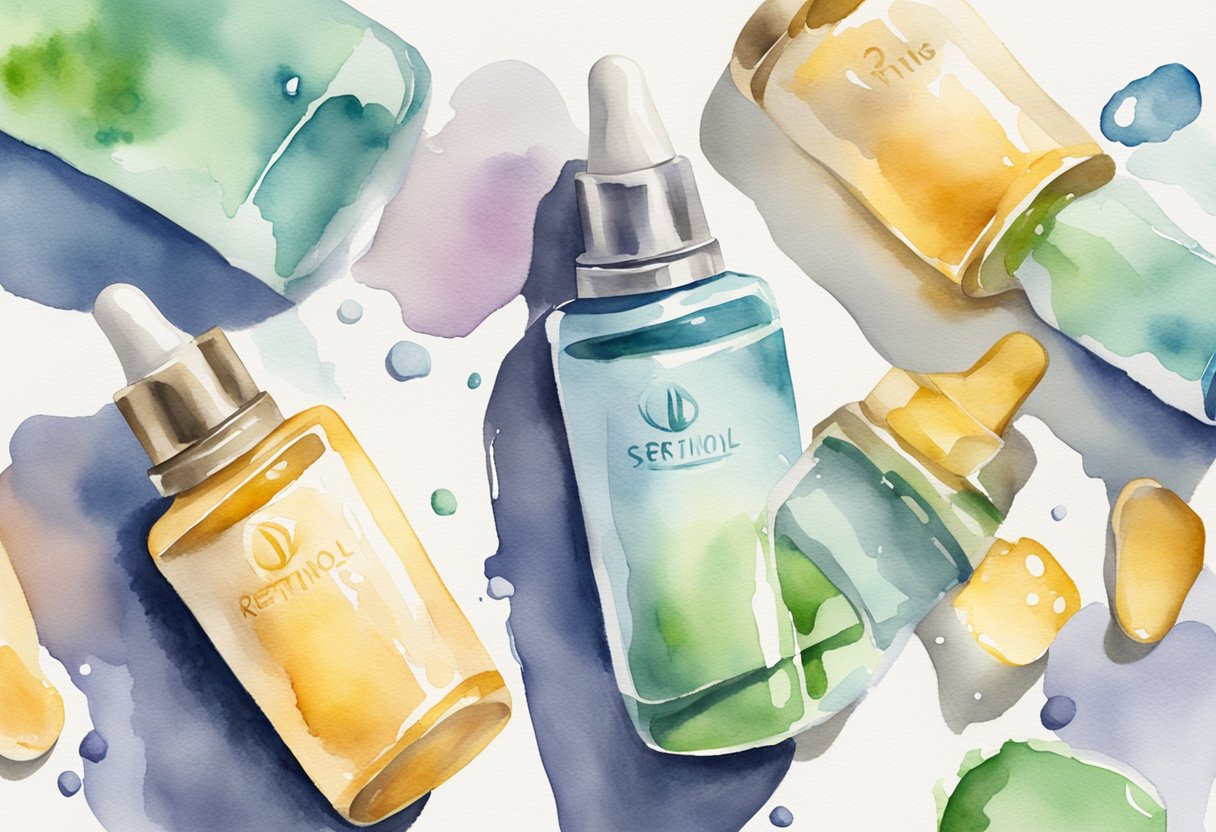
One way to optimize retinol serum absorption is to apply it correctly. Experts recommend using a dropper to squeeze out a drop or two of the serum into the palm of your hand, then using your fingertips to apply the serum to your face.
It is important to massage the serum into your skin in a circular motion and let it absorb fully before applying any other products.
Another way to optimize retinol serum absorption is to start with a low concentration before increasing frequency and strength. Dermatologists recommend starting with a low concentration to allow your skin to adjust to the ingredient.
Over time, you can increase the frequency and strength of your retinol serum to achieve the best results. By optimizing retinol serum absorption, you can achieve a brighter, smoother, and more youthful complexion.
Understanding Retinol Serum
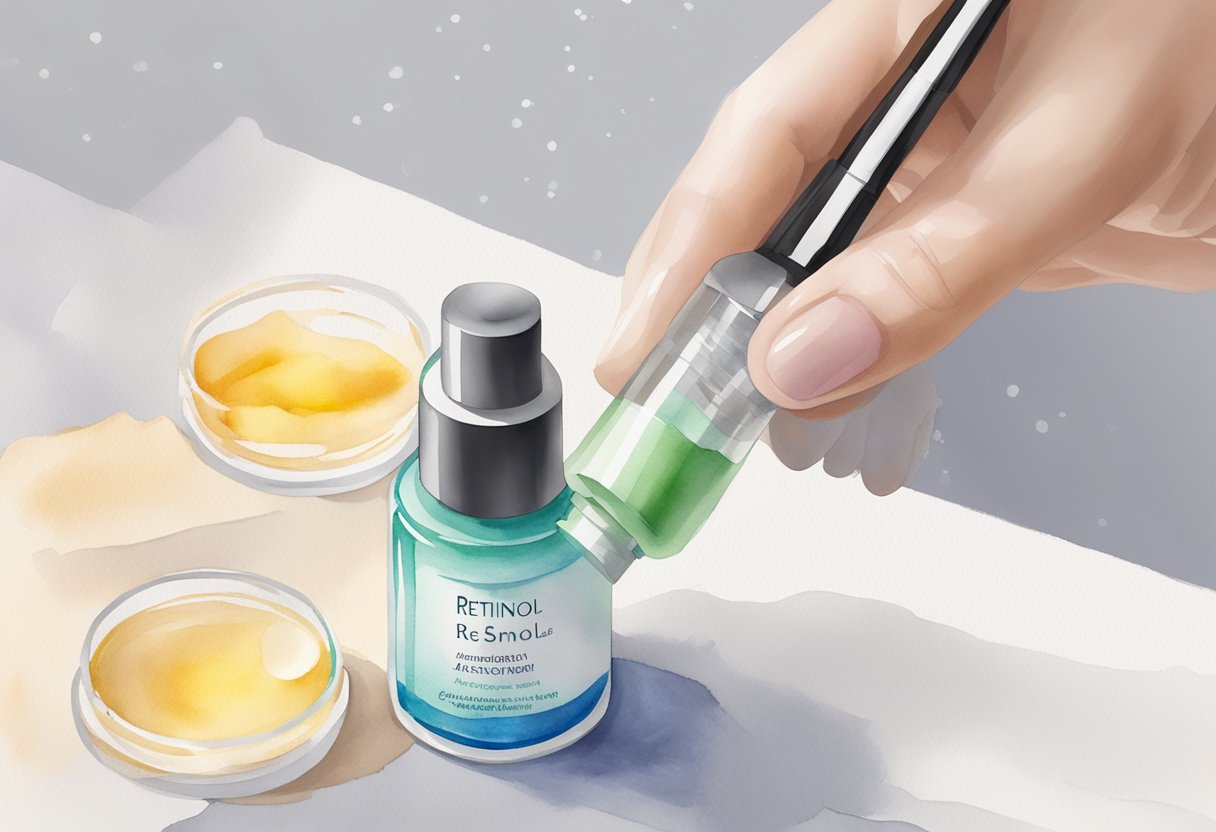
Retinol, a type of vitamin A, is a popular ingredient in skincare products, particularly in serums.
Retinol serum is a concentrated form of retinol that is designed to be absorbed into the skin more efficiently. It is important to understand the properties of retinol serum to optimize its absorption and effectiveness.
Retinol is a type of retinoid, which is a group of compounds that are derived from vitamin A. Retinoids play a crucial role in various physiological processes, including embryonic development, epithelial differentiation, and gene expression.
Retinol is converted into retinal by enzymes in the body, which is then converted into retinoic acid, the active form of vitamin A that binds to nuclear receptors to regulate gene expression and cellular differentiation.
Serum retinol is bound to a protein called retinol-binding protein, which helps to transport it through the bloodstream. Once it reaches the skin, it is converted into retinal and then into retinoic acid, which binds to retinoid X receptors and regulates gene expression.

Order our retinol serum fro our store here
This process can help to improve the appearance of fine lines, wrinkles, and hyperpigmentation, as well as increase collagen production and improve skin texture.
Retinol serum is often formulated with other ingredients that can help to enhance its absorption and effectiveness. For example, some serums contain bio retinoids, which are plant-based ingredients that mimic the effects of retinoids without causing irritation or sensitivity.
Other serums may contain carotenoids, which are antioxidants that can help to protect the skin from free radical damage.
Overall, understanding the properties of retinol serum is essential for optimizing its absorption and effectiveness.
By incorporating retinol serum into a skincare routine and using it correctly, individuals can achieve smoother, brighter, and more youthful-looking skin.
Importance of pH for Absorption
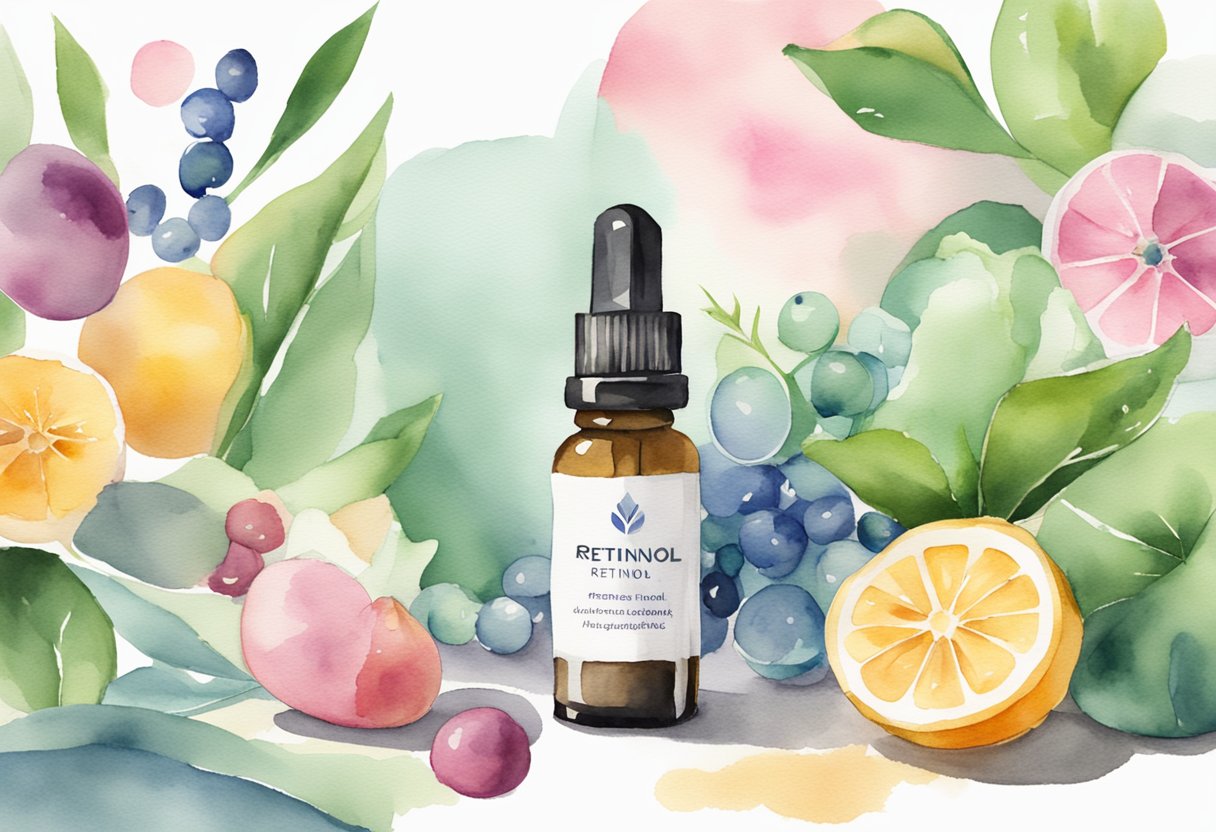
The pH of the skin and the retinol serum is an important factor in optimizing retinol serum absorption.
The skin's pH is typically between 4.5 and 5.5, which is slightly acidic. This acidity is important for maintaining the skin's barrier function, which helps to prevent water loss and protect against external irritants.
Retinol serum, on the other hand, has a pH that is typically around 6.0 to 7.0. This pH range is important for the stability of the retinol molecule. However, it is also important to note that the pH of the retinol serum can affect its ability to penetrate the skin.
Studies have shown that retinol serum absorption is optimal when the pH of the serum is slightly acidic, similar to the skin's pH. This is because the acidic pH helps to maintain the integrity of the skin's barrier function and enhances the activity of membrane transporters responsible for retinol absorption.
In addition to the pH of the retinol serum, luminal factors in the intestine can also affect retinol absorption. For example, the presence of dietary fat can enhance retinol absorption by facilitating its transport through the intestinal membrane.
Overall, optimizing retinol serum absorption requires careful consideration of factors such as pH, membrane transporters, and luminal factors.
By understanding these factors, it is possible to develop effective strategies for enhancing retinol serum absorption and improving the overall effectiveness of retinol-based skincare products.
Role of Retinol in Skin Health

Retinol is a form of vitamin A that is commonly used in skincare products due to its numerous benefits for the skin.
It is a powerful antioxidant that can help to protect the skin from damage caused by free radicals. Retinol is also known for its ability to improve skin texture, reduce the appearance of fine lines and wrinkles, and promote collagen production.
Collagen is a protein that is essential for maintaining skin elasticity and firmness. As we age, our bodies produce less collagen, which can lead to the formation of wrinkles and fine lines.
Retinol has been shown to stimulate collagen production, which can help to reduce the signs of ageing.
Retinol can also help to unclog pores and prevent the formation of acne. It works by increasing cell turnover, which can help to prevent the buildup of dead skin cells that can contribute to acne formation.
However, it can be irritating to sensitive skin, so it is important to use retinol products carefully and gradually increase the frequency of use.
In addition to its anti-ageing and acne-fighting benefits, retinol can also improve skin brightness and smoothness.
It can help to reduce the appearance of dark spots and hyperpigmentation, which can give the skin a more even tone. Retinol can also be beneficial for those with psoriasis, as it can help to reduce inflammation and improve skin texture.
Overall, retinol is a highly effective ingredient for improving skin health and appearance. However, it is important to use retinol products carefully and follow the instructions provided to avoid irritation and achieve the best results.
Scientific Studies on Retinol Serum Absorption
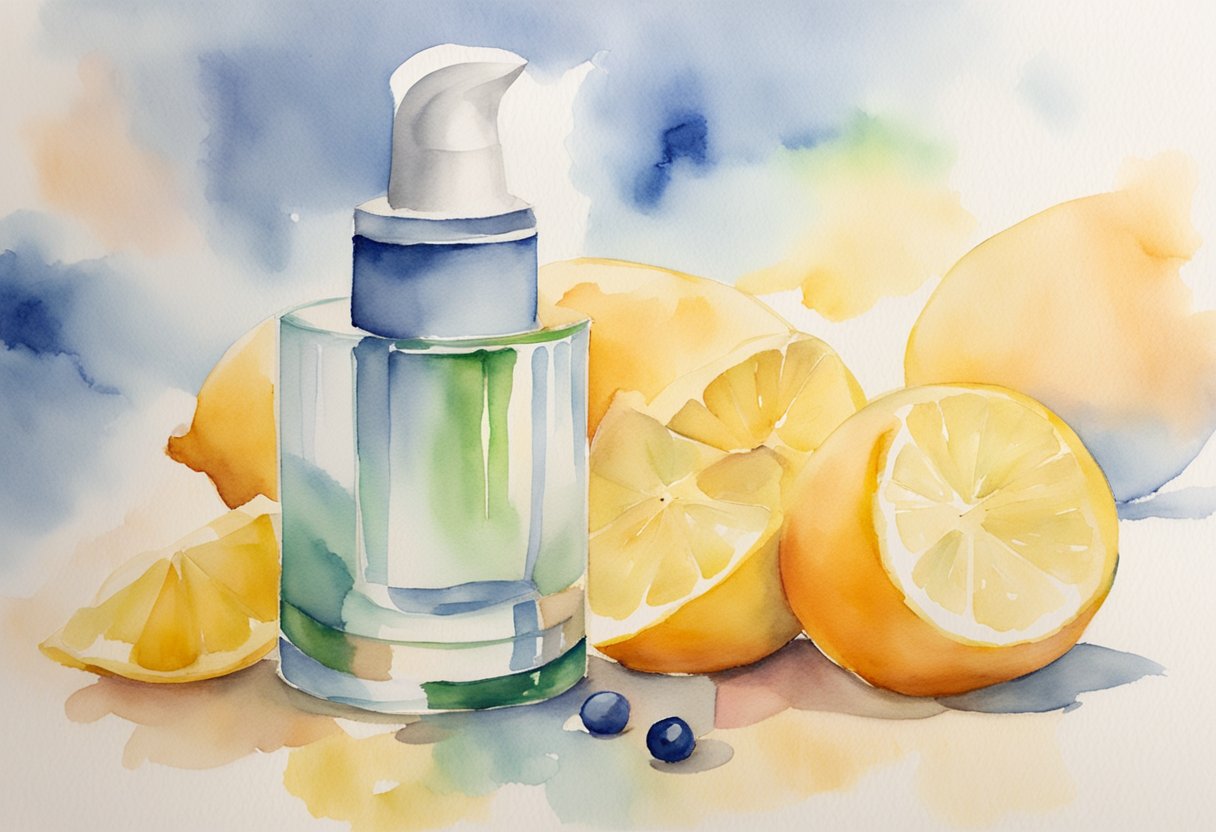
Several scientific studies have explored the efficacy and absorption of retinol serum.
A comparative study conducted by Mukherjee et al. (2006) found that topical retinol was effective in improving the appearance of photoaged skin. The study also revealed that retinol was able to penetrate the skin and increase the production of collagen.
Another study by Sorg et al. (2006) investigated the effects of retinol and retinoic acid on the epidermis and dermis.
The study found that topical application of retinol significantly affected both cellular and molecular properties of the skin, as shown by skin biopsy and noninvasive imaging analyses.
A double-blind, comparative clinical study conducted by Babcock et al. (2020) compared the safety and efficacy of newly formulated retinol serum with tretinoin creams.
The study demonstrated newly formed collagen and greater epidermal thickening in retinol serum subjects compared to tretinoin-treated subjects. The study also found that retinol serum was safe and effective with equivalent or better performance and tolerability than tretinoin creams.
A small pilot study conducted by Lee et al. (2021) investigated the efficacy of retinoid boosters for improvement of facial wrinkles. The study revealed that these boosters could enhance the pharmacological efficacy of topical applications of both retinol and retinoic acid for cosmetic use.
Overall, these studies suggest that retinol serum is effective in improving the appearance of photoaged skin and increasing collagen production. They also demonstrate that retinol can penetrate the skin and affect cellular and molecular properties.
Further studies are needed to investigate the optimal formulation and concentration of retinol serum for maximum efficacy and absorption.
Retinol and the Immune System

Retinol, also known as vitamin A, plays a crucial role in the immune system. It is involved in the differentiation and proliferation of immune cells, including T cells and B cells. Retinol also helps to regulate the immune response by modulating the production of cytokines and chemokines, which are involved in inflammation.
Inflammation is a natural response of the immune system to injury or infection. However, chronic inflammation can lead to tissue damage and contribute to the development of many diseases, including autoimmune disorders and cancer.
Retinol has been shown to have anti-inflammatory properties and may help to reduce the risk of these diseases.
Retinol also plays a role in maintaining the integrity of the mucosal barrier, which is the first line of defence against pathogens in the gut and respiratory tract.
This barrier is composed of epithelial cells and mucus, which trap and eliminate pathogens. Retinol helps to maintain the health of these cells and enhance their function.
Furthermore, retinol is essential for the development and function of the thymus gland, which is responsible for the production and maturation of T cells.
T cells are a type of immune cell that plays a critical role in the immune response. Retinol deficiency can lead to impaired T cell function and an increased risk of infection.
In summary, retinol plays a vital role in the immune system by regulating inflammation, maintaining the mucosal barrier, and supporting T cell function.
Optimizing retinol serum absorption can help to ensure that the body has adequate levels of this essential nutrient to support a healthy immune system.
Retinol in Dietary Supplements

Retinol is often included in dietary supplements due to its various health benefits. These supplements are available over the counter and are commonly marketed as multivitamins or as standalone vitamin A supplements.
Children, pregnant women, and individuals with certain medical conditions are often recommended to take retinol supplements to prevent deficiencies. However, it is important to note that excessive intake of retinol can lead to toxicity and adverse effects.
Vitamin E and vitamin D are two nutrients that are often included in retinol supplements to enhance their absorption and effectiveness. Vitamin E acts as an antioxidant and protects retinol from oxidation, while vitamin D helps regulate calcium levels in the body and supports bone health.
Bile and fatty acids play a crucial role in the absorption of retinol from dietary supplements. Bile emulsifies dietary fats and fat-soluble vitamins, including retinol, and facilitates their absorption in the small intestine.
Fatty acids also enhance retinol absorption by increasing its solubility in the gut lumen.
Pancreatic lipases and pancreatic lipase-related protein 2 are two enzymes that are involved in the digestion and absorption of retinol from dietary supplements. These enzymes break down retinyl esters into retinol, which is then absorbed into the bloodstream.
Overall, retinol supplements can be a convenient way to meet the body's vitamin A needs. However, it is important to follow the recommended dosage and consult a healthcare professional before starting any new supplement regimen.
Retinol in Anti-Ageing Products
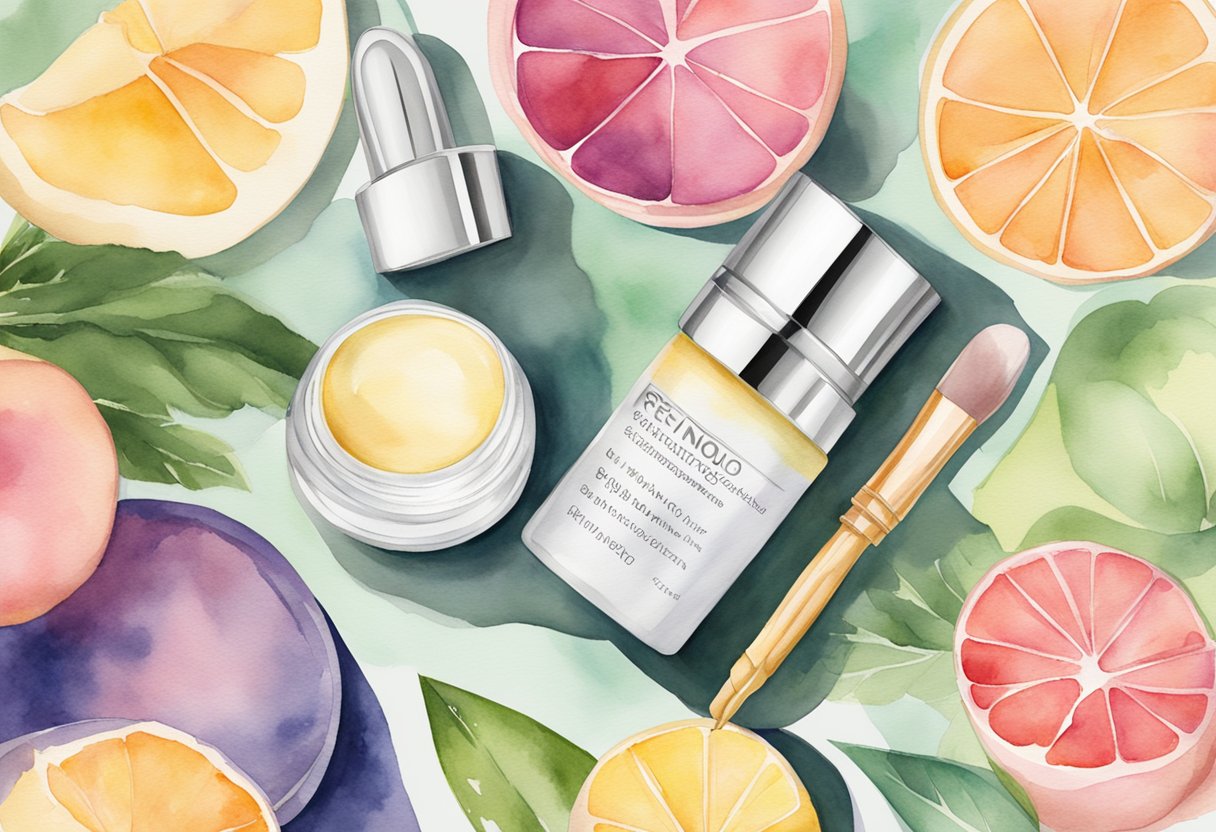
Retinol is a popular ingredient in anti-ageing products, including gels, creams, and serums. It is a form of Vitamin A that is used in cosmetic products to promote cell turnover and collagen production, resulting in smoother, firmer, and more youthful-looking skin.
Retinol is available both as a topical treatment and as a prescription medication. Tretinoin, for example, is a prescription-strength retinoid that is often prescribed by dermatologists for the treatment of acne and wrinkles.
Other prescription retinoids include tazarotene, adapalene, trifarotene, and alitretinoin.
While prescription-strength retinoids tend to be more effective than over-the-counter retinol products, they can also be more irritating to the skin. Over-the-counter retinol products, on the other hand, tend to be gentler but may take longer to produce visible results.
When using retinol products, it is important to follow the instructions carefully and to start with a lower concentration of retinol and gradually work up to higher concentrations. This can help to minimize the risk of skin irritation and other side effects.
Overall, retinol is a highly effective ingredient in anti-ageing products that can help to reduce the appearance of fine lines, wrinkles, and other signs of ageing.
Whether you opt for a prescription-strength retinoid or an over-the-counter retinol product, incorporating retinol into your skincare routine can help to promote a more youthful, radiant complexion.
Retinol and Chronic Diseases
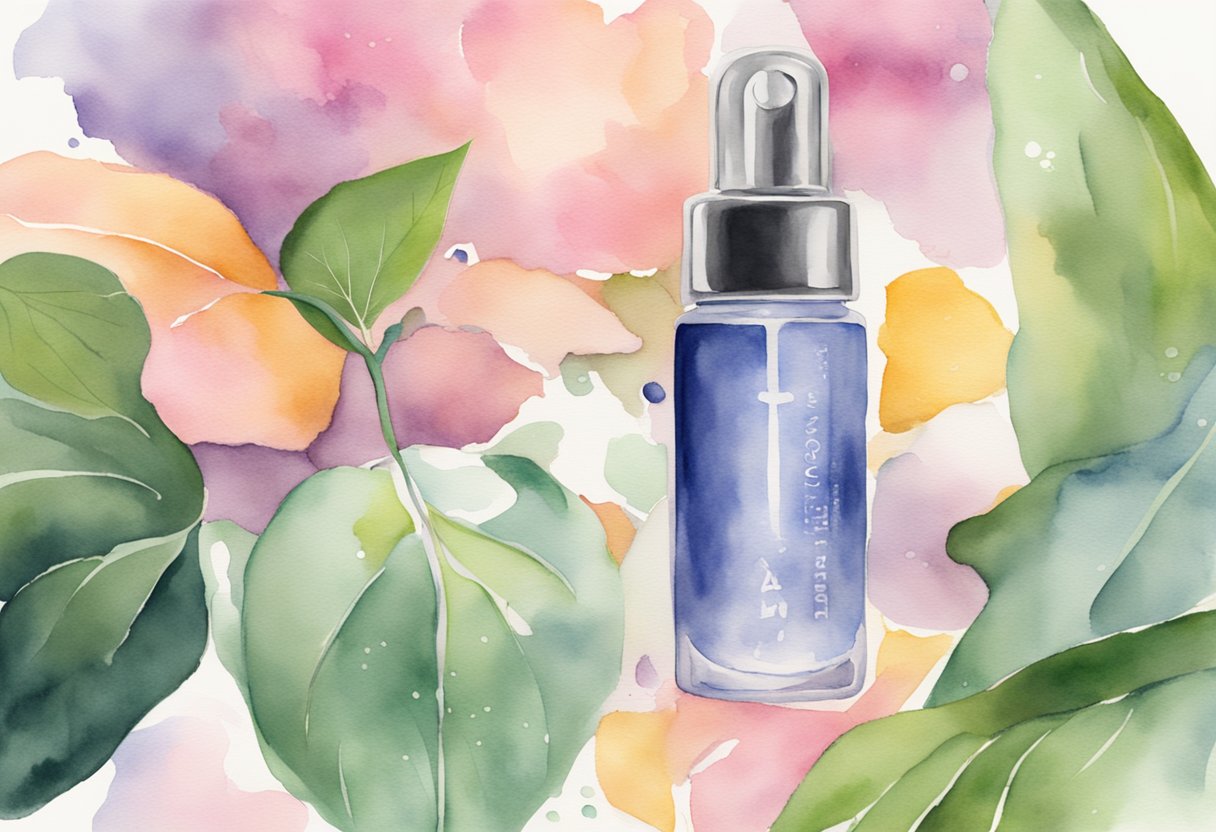
Retinol, also known as vitamin A, is an essential nutrient that plays a crucial role in maintaining healthy vision, skin, and immune function. However, recent studies have also suggested that retinol may have a protective effect against chronic diseases such as cancer and cardiovascular disease.
According to a study published in Nature, low serum retinol levels were associated with an increased risk of overall and cause-specific mortality.
During a 30-year cohort follow-up, 23,797 deaths were identified among 29,104 men. The study suggests that retinol may be a clinical indicator of vitamin A status and a potential biomarker for long-term mortality risk.
In addition, a study published in the Journal of Investigative Dermatology found that retinoids, a class of compounds derived from retinol, may have anti-cancer properties. The study showed that bexarotene, a retinoid drug, inhibited the progression of melanoma in mice.
Retinol also plays a crucial role in immune function and may help protect against infections. According to the World Health Organization (WHO) criteria, vitamin A deficiency is a significant public health problem in many developing countries, particularly in children under five years of age.
Vitamin A supplementation has been shown to reduce the risk of mortality from infectious diseases such as measles and diarrhoea.
Furthermore, retinol may have a protective effect against cardiovascular disease and stroke. A study published in Nature found that retinoids may reduce the risk of atherosclerosis, a condition that can lead to heart attacks and strokes. The study showed that retinoids improved lipid metabolism and reduced inflammation in the arteries.
In conclusion, retinol may have a protective effect against chronic diseases such as cancer, cardiovascular disease, and infections.
However, more research is needed to fully understand the mechanisms behind these effects and to determine the optimal levels of retinol intake for disease prevention.
Methods of Applying Retinol Serum
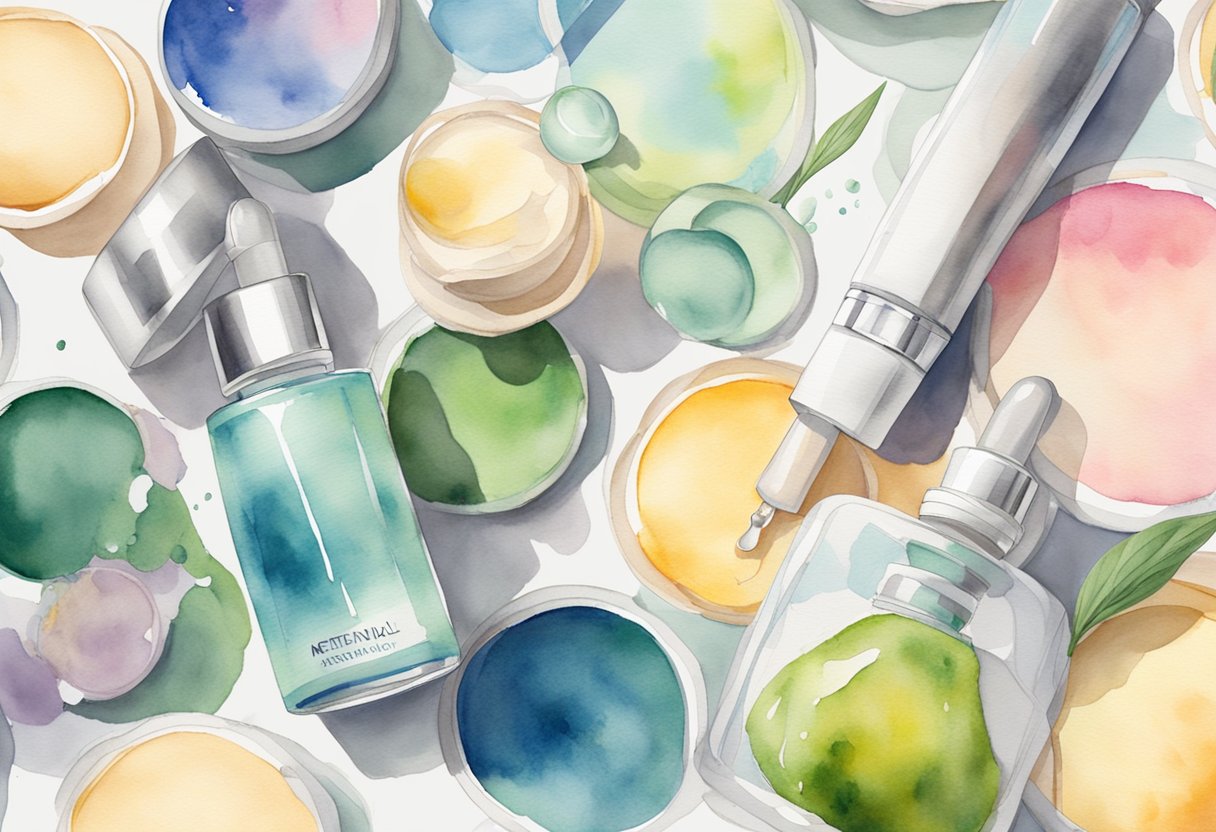
Retinol serum is a powerful skincare ingredient that can help reduce the appearance of fine lines, wrinkles, and other signs of aging.
However, to get the most out of your retinol serum, it's important to apply it correctly. Here are some methods of applying retinol serum that can help optimize absorption and effectiveness.
Pipette or Pump
Retinol serum is typically packaged in a glass bottle with a pipette or pump dispenser.
Both methods are effective, but some people prefer one over the other. A pipette allows for more precise application, while a pump dispenses a consistent amount of product each time. It's a matter of personal preference, so choose the one that works best for you.
Panel Testing
Before applying retinol serum all over your face, it's a good idea to do a panel test. Apply a small amount of product to a small area of skin, such as behind your ear, and wait 24 hours to see if there's any redness, irritation, or other adverse reactions.
If there are no issues, you can proceed with applying the serum to your entire face.
Proliferation
Retinol works by increasing cell turnover, which can lead to some initial dryness and flakiness. To help minimize this, start by using the serum every other night, and gradually work your way up to nightly use. This will give your skin time to adjust and prevent any irritation.
Tolerability
Retinol can be irritating to some people, especially those with sensitive skin. To help minimize irritation, apply a moisturizer after the retinol serum has absorbed into the skin. This will help lock in moisture and prevent dryness.
Hydrophobic and Liposomes
Retinol is a hydrophobic molecule, which means it doesn't dissolve in water. To help improve absorption, some retinol serums are formulated with liposomes.
Liposomes are tiny, spherical structures that can penetrate the skin's barrier and deliver the retinol deep into the skin. Look for a retinol serum that contains liposomes for optimal absorption.
In summary, there are several methods of applying retinol serum that can help optimize absorption and effectiveness. Use a pipette or pump dispenser, do a panel test, start with every other night use, apply a moisturizer, and look for a retinol serum with liposomes for optimal absorption.
With these tips, you can get the most out of your retinol serum and achieve smoother, more youthful-looking skin.
